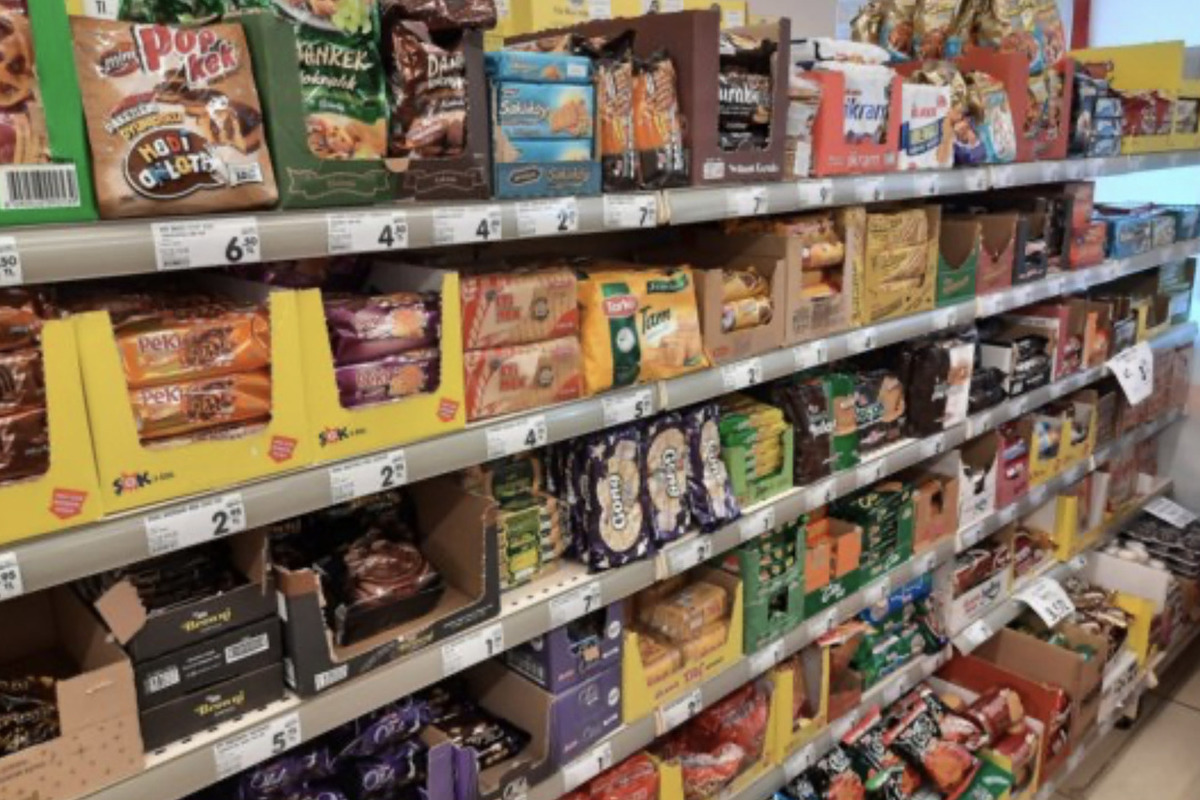“We eat caviar in basins”: what Russians eat in Turkey
[ad_1]

The assortment in Istanbul stores is noticeably different from those in Moscow: there is no pork, dumplings, herring, sour cream, cottage cheese and much more that are familiar to Russians. About how Russian speakers in Turkey are getting out of the situation in the material from MK.
After just a couple of months of living in Turkey, I suddenly wanted herring. Moreover, in Russia I only ate it on New Year’s, and then in the form of “herring under a fur coat.” I didn’t know about the existence of “Russian shops” at that time, so I even asked relatives who came to visit to bring “Russian fish”.
In Russian stores you can find familiar products, but the quality will differ significantly for the worse, and the prices will be horrifying. So, a 250-gram package of herring will cost about 700 rubles. A pack of marshmallows cost a little less than 1,000 rubles for eight pieces and about the same for four ordinary pork sausages.
Over the years of living in Turkey, Russians have found ways to adapt in such a way as not to give up their favorite food. On social networks, people share advice: which Turkish cheese is most similar to Russian cottage cheese, which Greek yogurt is best to replace sour cream, and which brands of sausages most reminded them of “dairy” ones.
There are also fortunate differences in tastes with the Turks. They, like many foreigners, do not eat caviar at all. If you ask to clean your fish in a supermarket and it turns out to have caviar, it will simply be thrown in the trash. On social networks, some admitted that they agreed with the fish seller so that he would not throw away this delicacy, but give it to them. “We eat caviar in bowls,” one woman boasted. However, it seems that the Turks have begun to suspect something and are increasingly asking Russians for money for a product that they themselves are throwing away.
Every now and then advertisements appear in groups for the sale of sweets: honey cakes and Napoleons. Basically only these two types of cake. It’s gotten to the point where, at the next announcement like this, people start swearing, saying as much as possible, it’s the same thing. In general, Russian-speaking people in Turkey are fed up with honey cakes.
Along with the influx of people from the CIS, for example, in Antalya, you can notice several interesting trends in the range of products and catering in general. So, for example, a Turkish manufacturer of sausages and sausages “a la” appeared, just like in Russia. Outwardly everything is similar, but the meat in them is halal and only chicken. For those who miss their native food, it may be suitable, but deep down you understand that this is not it. And you ask your relatives to bring the original.
A huge number of small entrepreneurs from social networks have appeared who, for a price that is quite immodest, by Russian standards, are ready to bring you homemade dumplings, pastries and some kind of “Kiev cutlets”. Judging by the amount of advertising that appears in various groups and public pages, there is demand.
Also, over the past year, cafes with “native” food have begun to appear. Moreover, there you can find both Russian-Ukrainian pancakes and borscht, as well as Caucasian-Uzbek khinkali and pilaf. To be honest, in Russia, with such prices and quality, these establishments would hardly survive for more than a month, but in conditions of “homesickness”, these establishments feel quite good in Turkey.
For example, in Istanbul there is a cafe that calls itself a “real Russian restaurant,” but looking at the reviews from our compatriots you are horrified: “The portions are small, the prices are greatly inflated. The service is mediocre, as if someone died there. The food is not tasty. In okroshka, instead of radishes, there are carrots. Olivier with sour yoghurt instead of mayonnaise.”
Nevertheless, Russians who miss their usual food are ready to give their money, and a lot of it, for all this. On average, for such a “meeting with the homeland” you will have to pay from two to three thousand rubles.
Many in Moscow are accustomed to using food delivery services – they are convenient and have a huge range and reasonable prices. In Turkey, judging by the cost of food and dishes, this service is intended only for the rich. Products are significantly more expensive despite the fact that their range is identical to that of a regular discounter. And among the dishes you will find almost only local cuisine: kebabs, lahmacun and pastries. In addition, the services work disgustingly, they can take hours to bring you food, try to find out the address by phone, bring it to another point, and so on.
In addition, in Turkey over the past year, prices have increased extremely significantly not only in the Turkish lira, which is subject to one of the highest rates of inflation, but also in dollar equivalent.
Despite the fact that the inhabitants of Turkey are mostly Muslim, buying alcohol in a big city is not difficult. It is sold either in hypermarkets or in small shops scattered throughout the city with the general name “tekel”. Almost everything is available, but if it is not produced in Turkey, get ready for crazy prices. Italian wine, for example, costs 2-3 times more than in Russia. However, our compatriots do not have any big problems with this issue.
[ad_2]
Source link








